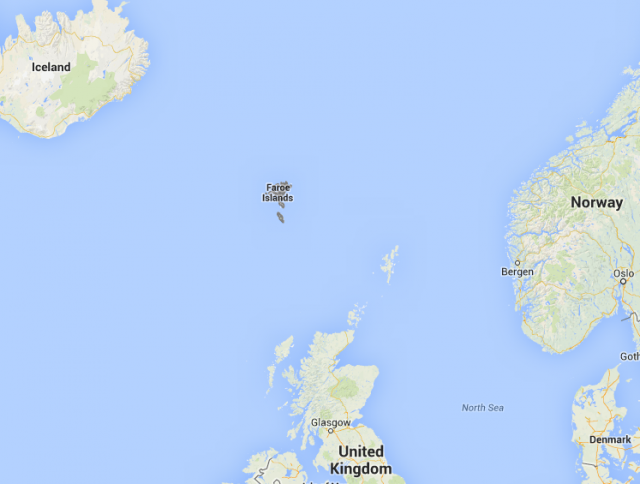Science
Related: About this forumSomeone beat the Vikings into the North Atlantic by 500 years
by Josephine Lethbridge
The Faroe Islands, a remote archipelago between Scotland and Iceland, could have been inhabited 500 years earlier than was previously thought, according to a startling archaeological discovery. The islands were thought to have been colonized by the Vikings in the 9th century AD. However, dating of peat ash and barley grains has revealed that humans had actually settled there somewhere between the 4th and 6th centuries AD.
The Faroes were the first stepping stone beyond the Shetland Islands for the dispersal of European people across the North Atlantic. The findings therefore allow speculation as to whether Iceland, Greenland, and even North America were reached earlier than previously thought.

Mike Church from the University of Durham said he and his research partner, Símun V. Arge from the National Museum of the Faroe Islands, had not expected to find such evidence. “Símun and myself sampled the site in 2006 to take scientific samples for environmental archaeological analysis from the medieval Viking settlement,“ he said.
“We uncovered some burnt peat ash containing barley grains under the Viking longhouse. It was not until we had it dated that we realized what we had found.”
more
http://arstechnica.com/science/2013/08/someone-beat-the-vikings-into-the-north-atlantic-by-500-years/
kysrsoze
(6,023 posts)MisterP
(23,730 posts)starroute
(12,977 posts)Certain evidence has been found that people lived on the Faroe Islands in two successive periods prior to the arrival of the Norse, the first between 400-600 AD and the second between 600-800 AD. Scientists from Aberdeen University have also found early cereal pollen from domesticated plants, which further suggests people may have lived on the islands before the Vikings arrived. This tends to confirm historical accounts and various speculations that the Irish before conversion to Christianity, and later Irish monks, may have migrated north to the Faroe Islands long before the Norse Vikings arrived there (after 800 AD).
This archeological evidence of human presence in the earlier of these periods coincides with the Irish chronicles (Lebor Gabála Érenn) which report wide-ranging Irish sea-raiding (Scoti) during the Roman period in Britain and in post-Roman period in areas across the shores of Britain, Northern Europe (even down the Loire Valley) and areas of Scandinavia. These raids most famously resulting in the capture and enslavement of the future St. Patrick (from either Wales or Brittany, depending on the source). These raids came to an end with the Christianization of Ireland from the 5th century as a result of the efforts of Patrick and his native Irish converts.
As to the latter period, this tends to confirm traditional document accounts of such Irish presence. There is a Latin account of a voyage made by Saint Brendan, an Irish monastic saint who lived around 484–578, there is a description of "insulae" (islands) resembling the Faroe Islands. This association, however, is far from conclusive in its description.
http://en.wikipedia.org/wiki/Brendan
Saint Brendan of Clonfert or Bréanainn of Clonfert (c. 484 – c. 577) (Irish: Naomh Breandán; Icelandic: Brandanus) called "the Navigator", "the Voyager", or "the Bold" is one of the early Irish monastic saints. He is chiefly renowned for his legendary quest to the "Isle of the Blessed," also called Saint Brendan's Island. . . .
St Brendan is chiefly renowned for his legendary journey to the Isle of the Blessed as described in the ninth century Voyage of St Brendan the Navigator. Many versions exist that tell of how he set out onto the Atlantic Ocean with sixty pilgrims (other versions have fourteen, plus three unbelievers who join at the last minute) searching for the Garden of Eden. One of these companions is said to have been Saint Malo, the namesake of Saint-Malo. If it happened, this would have occurred sometime between AD 512–530, before his travel to the island of Great Britain. On his trip, Brendan is supposed to have seen Saint Brendan's Island, a blessed island covered with vegetation.
VWolf
(3,944 posts)AsahinaKimi
(20,776 posts)hahaha!
eShirl
(18,505 posts)N_E_1 for Tennis
(9,787 posts)The Lion cornerbacks get stuck out on islands all the time!!! Lol!
Johonny
(20,909 posts)but sadly they were cast out to a second class division soon after.
HereSince1628
(36,063 posts)MynameisBlarney
(2,979 posts)Really makes me wish I'd followed my childhood dreams of becoming an archaeologist.